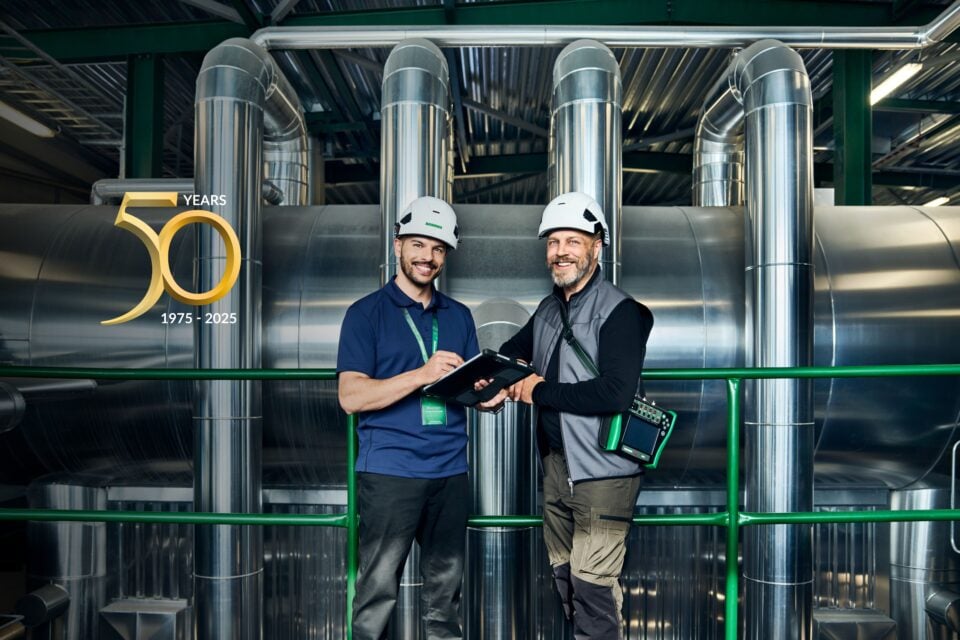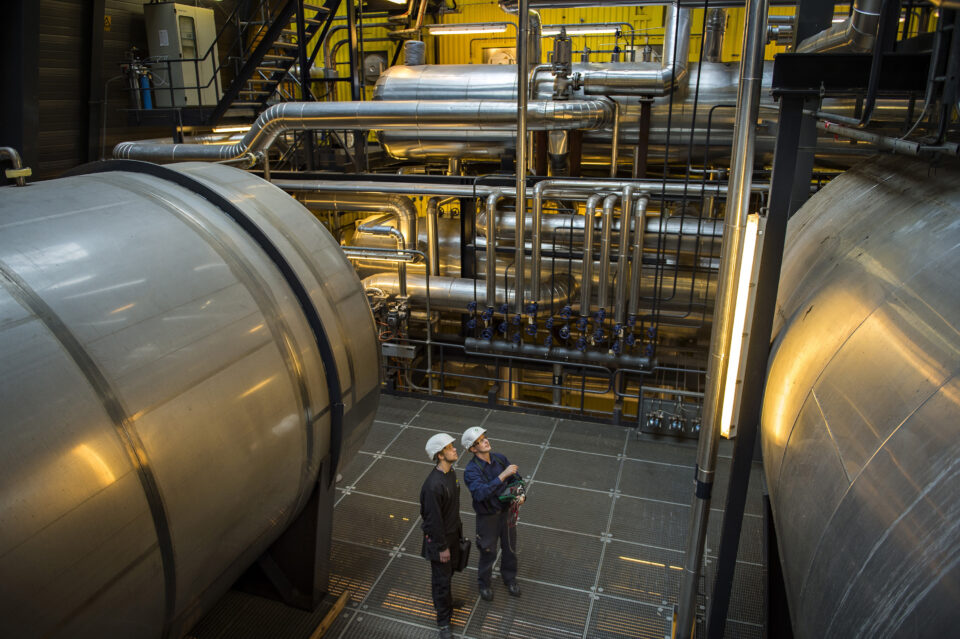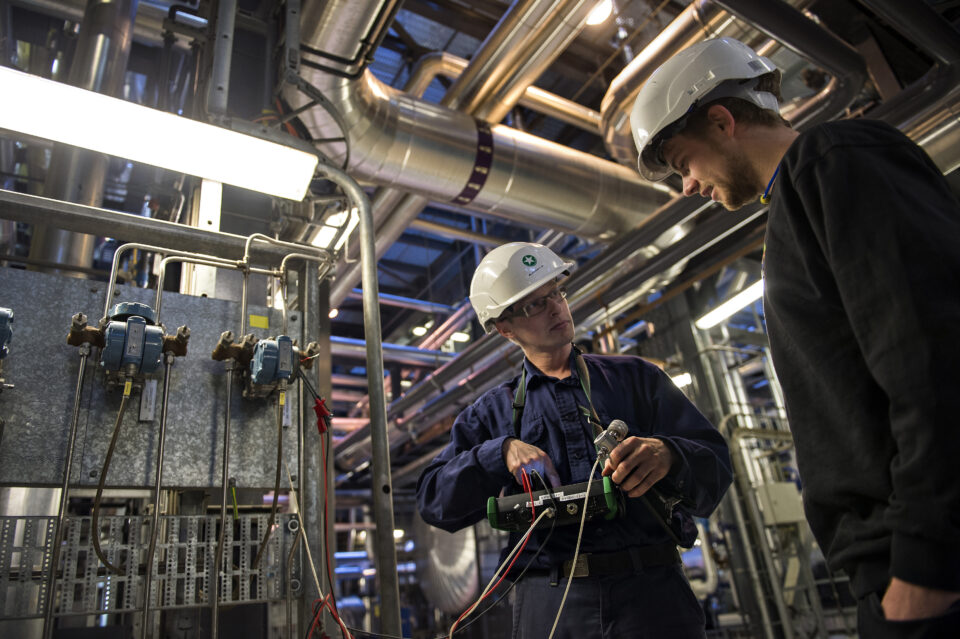
Parallel Paths: Lessons from IBM in Energy Democratisation
Antonio Matamala, Country Manager, Beamex Germany
The energy sector is beginning to reap the advantages of technological democratisation, but its societal importance raises concerns about safely steering this trend. While there are potential risks, there is a parallel between the energy industry and the evolution of the technology sector that can guide us. Just as IBM and Mark Zuckerberg’s Meta (Facebook’s parent company) symbolise major players in the fossil fuel sector, they also exemplify the alternating waves of centralisation and decentralisation.
These shifts are intricately tied to the ebb and flow of power dynamics, with technology often serving as both the catalyst and canvas for these transformations. If we look back at the 20th century, IBM was dominant for decades, thanks to its mainframes that adopted a centralised approach due to the concentrated computational power requirements. The landscape altered when Bill Gates introduced the concept of placing a personal computer on every desk, initiating a shift towards architectural decentralisation.
We then saw the emergence of social media platforms that gave users the illusion of the power of control to generate content and influence online narratives, but figures like Zuckerberg were in command. The frenzy surrounding Web 3.0 is characterised by decentralisation, blockchain technology and cryptocurrency, underscored by a philosophy of distributed data aimed at preventing any single entity from wielding absolute control.
Today, we have artificial intelligence and large language models (LLMs) that are so huge they require the centralisation of computing power, knowledge and capital investment. We’re back to the days of IBM controlling everything. Yet, we’re now hearing about Emad Mostaque’s Stability AI, which aims to decentralise LLMs with a fascinating open-source approach.
Through that technological advancement lens, we can view the decentralisation and democratic distribution of energy. In Germany, major energy players like EON, RWE, EnBW and Vattenfall are being forced to relinquish control. Previously reliant on fossil fuels for steady income, they’re now confronted with the uncertainties of renewables. The energy transition is causing substantial upheaval, forcing them to be more democratic. The autocratic era is over.
Striking Balance Between Idealism and Dominance
Beamex is realistic about the back-and-forth tension between centralisation and decentralisation, but it’s still better than extremes. There’s a risk of a renewable dictatorship if the recognition of balance doesn’t temper idealism. As such, decarbonisation must progress in tandem with technological advancements. If technology becomes overly large and costly, accessible only to corporations for power generation, it could promote a trend towards centralisation.
Thankfully, this is not happening in Germany, but all that glitters isn’t gold. The government has been generous towards subsidies, allowing many citizens to install an autonomous electricity-generating asset in their homes, demonstrating the decentralisation that goes with technology. However, it gets complicated because energy is not a game.
Germany has some of the highest electricity prices compared to countries like the USA, France and China. Industry pays a fraction of what citizens pay, but the difference to these other countries ranges from three to sevenfold. The news is full of stories about saving energy-intensive German industries like steel and aluminium production, overlooking chemical companies that have also seen their electricity bills at least double. This is why the industry is pressuring the government to reduce the price of electricity by a factor of three.
Opponents argue that this approach is illogical, pointing out that numerous companies have departed Germany to pursue more cost-effective environments—a trend that is expected to endure. Furthermore, the complexity of this delicate balancing act becomes evident when factoring in the geopolitical vulnerabilities associated with depending on nations like Russia for energy resources.
Besides the political and economic risks, energy supply is not a game from a technological point of view. If you have a citywide blackout or the local energy grid collapses, you can’t just reboot and start again like a computer. It requires a certain amount of control, which may differ from centralisation. It is such an asset-intensive industry that you still need a secure, highly reliable infrastructure to make it work. On an ideological level, we’d all like to end those monolithic energy firms. Still, most people aren’t willing to give up comfort in exchange for decentralisation and the risk of power outages or shortages.
One big influencer will be legislation because this is critical infrastructure. These are essential industries that are heavily regulated. Given their reluctance to voluntarily relinquish business control, effective policies can be devised by governments to offset the profit-centric motives of companies, even if tax payments are unpopular. Legislation can be a powerful tool to hold significant players, like RWE, accountable.
Innovating a Democratic Pathway
According to experts, the democratisation of technology will drive the upcoming surge of innovation spanning various sectors, but it will demand accessibility. For example, if you want to rock the boat in the software industry, you need a laptop, intelligence and imagination. Instigating changes at a multinational oil and gas company like Exxon is far more challenging since they innovate to improve their processes at the macro level but not at a societal level.
It isn’t the Exxons of this world developing innovations like a flexible thermoelectric foil that can wrap around pipes and other hot surfaces to convert wasted heat into electricity or designing solar road panels installed beneath a highway to utilise the available urban space to generate electricity efficiently. The transitions from centralisation to decentralisation, reminiscent of IBM and Zuckerberg’s influence, illustrate how technological catalysts shape societal shifts. Striking the right balance is vital, as Germany’s energy transition shows. While democratising, secure infrastructure and regulated control remain crucial. Legislation will steer essential industries, aligning profits with societal interests. Ultimately, innovation’s democratic nature, coupled with accessibility, will shape progress.
You might also find interesting

For a safer and less uncertain world
Welcome to our series of topical articles where we discuss the impact that accurate measurement and calibration has on the world and our everyday lives.
























